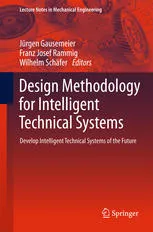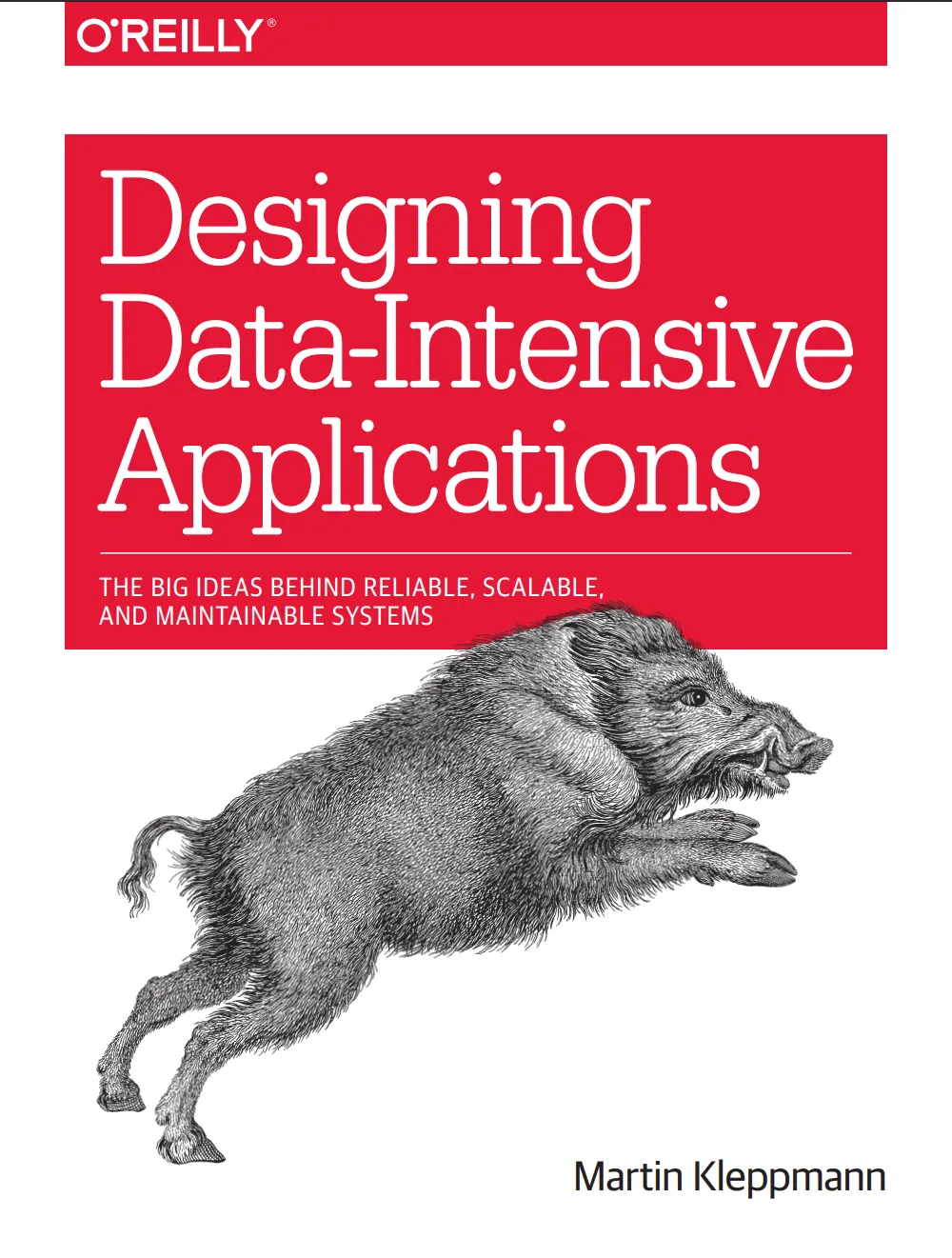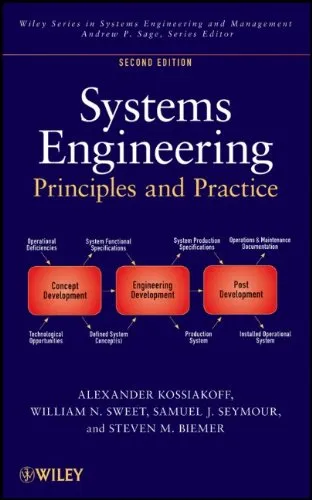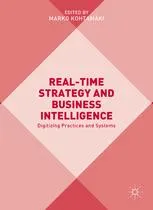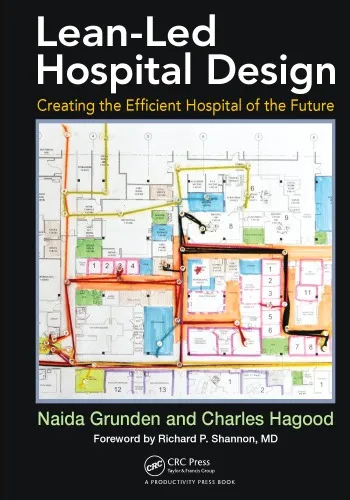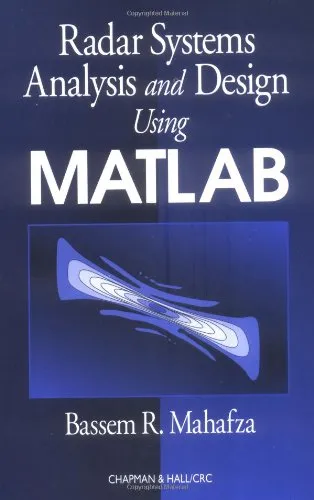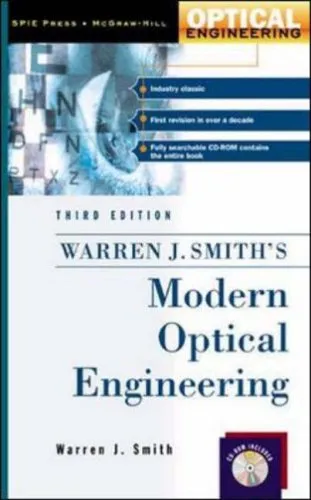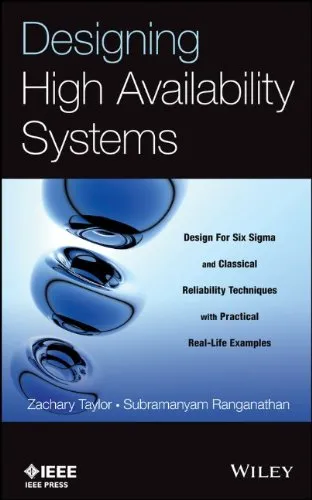Design Methodology for Intelligent Technical Systems: Develop Intelligent Technical Systems of the Future
4.5
بر اساس نظر کاربران

شما میتونید سوالاتتون در باره کتاب رو از هوش مصنوعیش بعد از ورود بپرسید
هر دانلود یا پرسش از هوش مصنوعی 2 امتیاز لازم دارد، برای بدست آوردن امتیاز رایگان، به صفحه ی راهنمای امتیازات سر بزنید و یک سری کار ارزشمند انجام بدینکتاب های مرتبط:
کتاب "Design Methodology for Intelligent Technical Systems: Develop Intelligent Technical Systems of the Future"، اثری از 'Michael Dellnitz' و 'Roman Dumitrescu' با ویرایش 'Jürgen Gausemeier، Franz Josef Rammig و Wilhelm Schäfer'، قدم به قدم به بررسی اصول و رویکردهای طراحی سیستمهای فنی هوشمند میپردازد. این کتاب، با معرفی methodologyهای پیشرفته و مدلسازی نوآورانه، راهنمایی جامع برای مهندسان و محققانی است که به دنبال توسعه فناوریهای پیشرفته در دنیای مدرن هستند.
خلاصه جامع کتاب
این کتاب، به عنوان یکی از منابع اساسی در حوزه سیستمهای فنی هوشمند، شامل مجموعهای از روشها و ابزارهای طراحی است که به مهندسان کمک میکند تا سیستمهایی با قابلیت تعامل پیچیده، تصمیمگیری مستقل، و انعطافپذیری بالا ایجاد کنند. محتوای این اثر شامل بررسی زیرساختهای تکنولوژیکی، روشهای software engineering و سیستمهای پیچیده (Complex Systems)، و همچنین مفاهیمی مانند سیستمهای سایبر-فیزیکی (Cyber-Physical Systems) و رفتار هوشمند (Intelligent Behavior) میباشد.
کتاب حاضر با ارائه چارچوبی کاربردی، به طراحان سیستمهای فنی کمک میکند تا فناوریهایی را طراحی کنند که با بهرهبرداری از دادههای محیطی، قابلیت یادگیری مداوم داشته باشند. به علاوه، در این کتاب نحوه تلفیق رویکردهای مختلف مانند Mechanical Engineering، IT، و Automation برای ایجاد سیستمهای مدرن تشریح شده است.
نکات کلیدی از کتاب
- اهمیت Cyber-Physical Systems در توسعه آینده صنعت و فناوری.
- نحوه استفاده از روشهای مدلسازی برای پیشبینی رفتار سیستمهای هوشمند.
- چگونگی یکپارچهسازی میان Engineering Disciplineها با هدف بهینهسازی سیستمهای پیچیده.
- معرفی Intelligent System Competence و کاربردهای لحاظ شده در صنایع مدرن.
- نقش Design Methodology در خلق سیستمهای هوشمند با قابلیت تعامل انسانی.
جملات معروف از کتاب
"The development of intelligent technical systems is not merely an engineering challenge; it is a cross-disciplinary innovation that merges mechanics, electronics, and software into one integrated system."
"Intelligent systems are the backbone of Industry 4.0, pushing the boundaries of what technology can achieve by integrating autonomy, adaptability, and intelligence."
چرا این کتاب مهم است؟
توسعه سیستمهای فنی هوشمند برای آینده فناوری اهمیت بسزایی دارد؛ چرا که این سیستمها میتوانند فرآیندهای صنعتی، اجتماعی و حتی روزمره را بهبود ببخشند. این کتاب به طور خاص برای کمک به مهندسان و طراحانی نوشته شده است که میخواهند فناوریهای پیشرفته را با نیازهای جامعه مدرن تطبیق دهند.
علاوه بر این، کتاب "Design Methodology for Intelligent Technical Systems" از جمله معدود منابعی است که چرخه کامل طراحی تا توسعه سیستمهای هوشمند را پوشش میدهد. از مزایای این اثر میتوان به ارائه ابزارهای Decision-Making، معرفی روشهای متدولوژیک جدید، و تحلیل سیستمهای پیچیده اشاره کرد.
در دنیایی که استفاده از سیستمهای هوشمند به جریان اصلی تبدیل شده است، این کتاب به متخصصان کمک میکند تا درک عمیقتری از زیرساختهای تکنولوژی مدرن پیدا کرده و فناوریهای آیندهنگرانه را با موفقیت طراحی کنند.
Introduction
The rapid development of technology and the growing complexity of technical systems have driven the need for sophisticated methodologies to design intelligent technical systems. The book "Design Methodology for Intelligent Technical Systems: Develop Intelligent Technical Systems of the Future" serves as a comprehensive manual for engineers, researchers, academics, and practitioners who seek to understand and apply structured methods in the design of intelligent systems. Authored by industry professionals and academic leaders, the book addresses the interplay between technology, creativity, and innovation, forming a foundation for the next generation of technical systems.
At its core, the book explores the essentials of intelligent systems, providing methods, techniques, and strategies to build adaptable, self-optimizing, and interactive systems. It not only focuses on theoretical knowledge but also integrates practical applications, making it an indispensable guide for anyone interested in developing smart systems aligned with the Industry 4.0 paradigm.
Detailed Summary of the Book
The book is divided into several in-depth chapters, each delving into crucial aspects of intelligent technical systems. It begins by defining what constitutes an intelligent system, tracing their evolution from traditional static systems to highly dynamic, learning-oriented configurations. The authors emphasize the role of software-hardware integration, artificial intelligence (AI), and model-driven approaches in enhancing system performance and autonomy.
Key methodologies such as systems engineering, interdisciplinary collaboration, and scenario-based design are thoroughly discussed, showcasing their relevance to modern technical challenges. Methods for requirement analysis, concept development, and validation are included to provide step-by-step insights into the holistic design process. Case studies from real-world projects span various industries—manufacturing, automotive, and robotics—demonstrating the practical value of implementing the methods outlined in the book.
The book concludes with an exploration of future trends, including developments in cyber-physical systems, the Internet of Things (IoT), and AI integration, empowering readers to remain at the forefront of innovation.
Key Takeaways
- Comprehensive overview of intelligent technical systems and their characteristics.
- Step-by-step design methodologies for developing adaptable, self-optimizing systems.
- Emphasis on interdisciplinary collaboration and systems thinking.
- Detailed case studies highlighting practical applications and successful implementations.
- Innovative approaches to future trends such as AI, IoT, and cyber-physical systems.
Famous Quotes from the Book
“The future of technical systems lies not only in their functionality but in their capacity to learn, adapt, and grow alongside the environments they are designed to serve.”
“Intelligent systems are the result of blending technological innovation with human ingenuity—a confluence of engineering and creativity.”
“Designing intelligent systems requires us to think beyond the immediate problem and consider the system's lifecycle, interactions, and evolution over time.”
Why This Book Matters
In an era where the boundaries between humans and machines are increasingly blurred, this book stands out as a vital resource to guide innovation in intelligent technical systems. It equips readers with the tools and frameworks necessary to bridge the gap between theory and practice, ensuring smart systems meet both functional and societal needs. By addressing multi-disciplinary approaches and emphasizing future-proof designs, the book positions itself as an essential text for those pioneering advancements in Industry 4.0.
Furthermore, the wide range of real-world examples provides readers with actionable insights, inspiring innovation and creative problem-solving in industries undergoing digital transformation. Whether you are an engineer, a decision-maker, or a student, the lessons in this book ensure a holistic understanding of intelligent systems, marking a step toward shaping the technological landscape of the future.
دانلود رایگان مستقیم
شما میتونید سوالاتتون در باره کتاب رو از هوش مصنوعیش بعد از ورود بپرسید
دسترسی به کتابها از طریق پلتفرمهای قانونی و کتابخانههای عمومی نه تنها از حقوق نویسندگان و ناشران حمایت میکند، بلکه به پایداری فرهنگ کتابخوانی نیز کمک میرساند. پیش از دانلود، لحظهای به بررسی این گزینهها فکر کنید.
این کتاب رو در پلتفرم های دیگه ببینید
WorldCat به شما کمک میکنه تا کتاب ها رو در کتابخانه های سراسر دنیا پیدا کنید
امتیازها، نظرات تخصصی و صحبت ها درباره کتاب را در Goodreads ببینید
کتابهای کمیاب یا دست دوم را در AbeBooks پیدا کنید و بخرید
1298
بازدید4.5
امتیاز0
نظر98%
رضایتنظرات:
4.5
بر اساس 0 نظر کاربران
Questions & Answers
Ask questions about this book or help others by answering
No questions yet. Be the first to ask!
